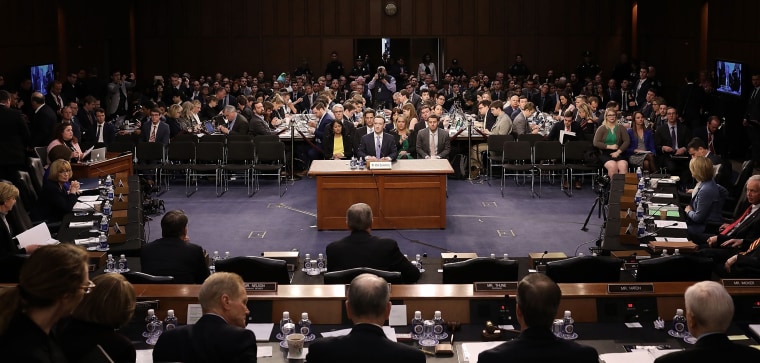This week’s Facebook hearings made clear both how powerful new technologies are, and how important it is to have a common understanding of their basic mechanics.
All in all, nearly 100 members of Congress questioned Facebook founder Mark Zuckerberg over the course of two days about the company he began in his college dorm room in 2004. They asked about data storage and privacy, and inquired about algorithms, encryption, and broadband. They sought assurances about the scope of targeted advertising and information about how artificial intelligence may be used to assess what is available about all of us online. It was also clear that as technology becomes ingrained in our everyday lives — from the social media platforms we use to the online services we enjoy to the smart home devices we install in our living rooms — we may not always know just how it all works.
So, while Congress considers future steps to take on issues this technical, it might also consider bringing back a tool from recent history: The Office of Technology Assessment.
As technology becomes ingrained in our everyday lives, we may not always know just how it all works.
The Office of Technology Assessment was a nonpartisan office established in 1972 but closed in 1995, when it was de-funded by the newly-Republican controlled House just as the internet era was getting underway. In its 23 years, it served as the in-house expert for Congress and its committees on technical and scientific matters. Governed by a twelve-member board, with six members from each party, the office provided members of Congress with cutting-edge policy advice on the role of new technology in communications, agriculture, transportation, defense, medicine and other sectors of the economy.
Over the course of its tenure, the office produced nearly 750 studies including assessments of everything from acid rain to applied genetics and insights on topics ranging from polygraphs to nuclear policy. It even published a landmark study on “Information Technology and its Impact on American Education,” foreseeing early the role that computers would come to play in our nation’s classrooms.
The work of the office was studiously balanced; its reports featured the pros and cons of major policy choices and both sides were in the habit of citing its work. As former Congressman Amo Houghton, R-N.Y., described it, “The creed of the Office of Technology Assessment was to come as close as possible to objective analysis.”
The digital age is so complex that old laws do not neatly capture how we interact with new technologies, and understandable facts about how the online world works are in short supply.
As a result, it became a trusted authority for technical issues and in the process helped Congress pass major legislation like the Energy Security Act and Superfund laws.
The influence of this office even extended beyond our borders: By one count, representatives from one-third of the world’s nations visited the office to learn how it worked. Comparable offices were discussed or established in countries as diverse as Austria, France, Japan, and Mexico. Clearly, it was apparent around the world that providing lawmakers with technology expertise could facilitate the passage of laws more mindful of how the future might unfold.
Nonetheless, funding was withdrawn as part of the broader Contract with America reforms put in place when control of the House of Representatives changed in 1995.
It’s especially difficult for legislators and regulators to develop this baseline of understanding when innovation can invert much of what we think we know so quickly.
If the work of the OTA was useful and important more than two decades ago, it is doubly so now. As this week’s hearings demonstrated, the digital age is so complex that old laws do not neatly capture how we interact with new technologies, and understandable facts about how the online world works are in short supply. Those facts, however, they are essential for informed lawmaking, especially as new technologies — like virtual reality, 5G wireless services, and autonomous vehicles — are being developed and deployed right now.
It’s especially difficult for legislators and regulators to develop this baseline of understanding when innovation can invert much of what we think we know so quickly.
Developing this understanding is not easy, but it is necessary for good legislation. It is time to increase the odds of successful policymaking in the future by borrowing a template from the past — and bringing back the Office of Technology Assessment.
Jessica Rosenworcel is a member of the Federal Communications Commission.

